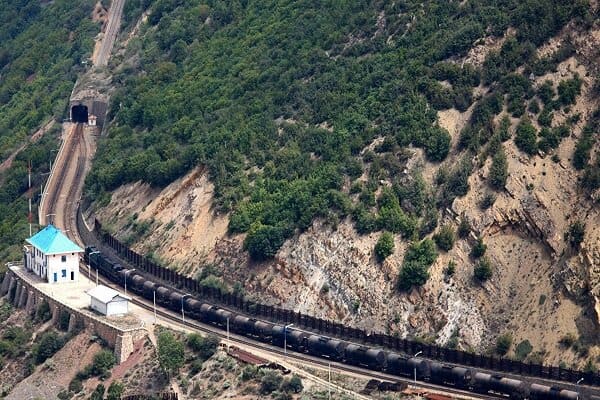Tehran, Iran – Russia and Iran are set to sign a bilateral agreement on the construction of the Rasht-Astara section in Iran, according to Russian Deputy Prime Minister Alexander Novak.
“We just discussed the signing of a bilateral agreement between the two countries on extension of the Rasht-Astara railroad with [Iranian] Ambassador. Hopefully it will be done [agreement will be signed] as early as in May as we have agreed almost on everything. Agreement procedures are underway now,” he said on the sidelines of the Caucasus Investment Exhibition in Mineralnye Vody. “It is a very important step <…> to connect railroad infrastructure of Russia and Iran,” Novak added, TASS reported.
The project is aimed at connecting the land sections of the International North-South Transport Corridor, which will increase the economic efficiency of the trans-Caspian route.
The agreement, which may be signed as early as May, will extend the Rasht-Astara railroad and connect the railroad infrastructure of the two countries.
The construction of the Rasht-Astara section is estimated to cost around $1.6 billion and take four years to complete.








